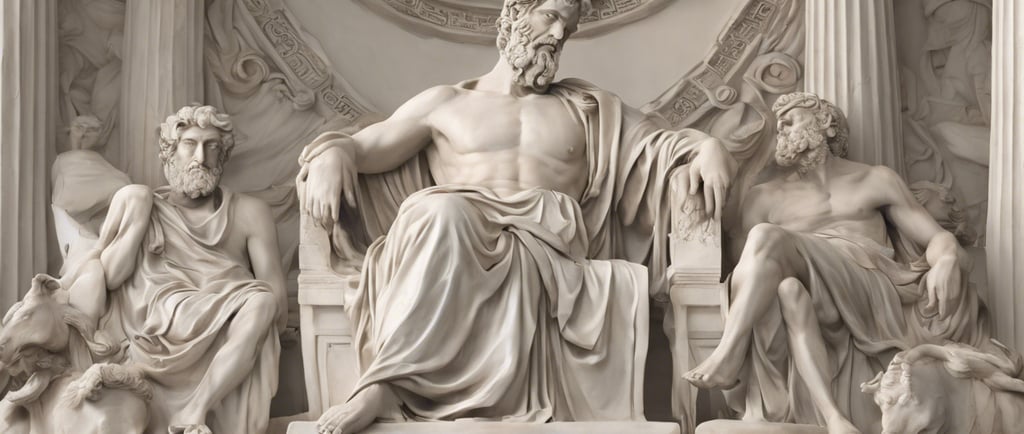Lesser-Known Stoic Philosophers Worth Exploring
When most people think of Stoicism, they often focus on the famous Roman Stoics like Seneca, Epictetus, and Marcus Aurelius. However, there are many lesser-known Stoic philosophers whose ideas and teachings are equally valuable and insightful. Here are some of these overlooked Stoic thinkers worth exploring.
STOICISM
10/3/20242 min read


1. Musonius Rufus (c. 30-100 CE)
Musonius Rufus was a Roman Stoic philosopher and teacher who emphasized the practical application of philosophy to everyday life. He taught that the goal of philosophy was to live a virtuous and meaningful life, not just to engage in abstract theorizing.
Musonius believed that philosophy should be accessible to everyone, regardless of social status or gender. He encouraged his students to cultivate self-discipline, moderation, and inner strength through the practice of Stoic exercises and ethical reasoning.
2. Hierocles (c. 2nd century CE)
Hierocles was a Stoic philosopher who lived in Alexandria, Egypt during the 2nd century CE. He is known for his work on ethics, particularly his concept of "circles of concern" or "Hierocles' circle."
This idea suggests that we should extend our concern and moral consideration outward in concentric circles, starting with ourselves and moving to our family, friends, community, and ultimately all of humanity. Hierocles believed that by cultivating this expansive sense of ethical concern, we could live more compassionate and fulfilling lives.
3. Cleomedes (c. 2nd century CE)
Cleomedes was a Stoic philosopher and astronomer who wrote an important work on cosmology called "On the Circular Motions of the Celestial Bodies." In this treatise, he explored ideas about the nature of the universe, the shape of the Earth, and the movements of the stars and planets.
Cleomedes also discussed Stoic ideas about fate, providence, and the rational order of the cosmos. His work provides valuable insights into how the Stoics understood the natural world and humanity's place within it.
4. Panaetius of Rhodes (c. 185-110 BCE)
Panaetius was a Greek Stoic philosopher who played a key role in introducing Stoicism to Rome. He was a friend and advisor to several prominent Romans, including Scipio Aemilianus and Laelius.
Panaetius adapted Stoic ideas to the Roman cultural context, emphasizing the importance of practical ethics, political engagement, and the fulfillment of social roles and duties. His teachings helped pave the way for the later development of Roman Stoicism.
5. Posidonius of Rhodes (c. 135-51 BCE)
Posidonius was a Greek Stoic philosopher, historian, and scientist who made significant contributions to geography, meteorology, and anthropology. He traveled widely and wrote extensive works on various subjects, including ethics, physics, and history.
Posidonius had a more eclectic and empirical approach to Stoicism than some of his predecessors. He emphasized the importance of observing and studying the natural world to gain wisdom and understanding.
Conclusion
While the famous Roman Stoics tend to receive the most attention, there are many other Stoic philosophers worth studying. Musonius Rufus, Hierocles, Cleomedes, Panaetius, and Posidonius all made valuable contributions to Stoic thought and practice.
By exploring the ideas of these lesser-known Stoics, we can gain a richer and more nuanced understanding of this enduring philosophical tradition. Their insights into ethics, cosmology, and the art of living well are just as relevant and applicable today as they were in ancient times.
Waste no more time arguing about what a good man should be. Be one - Marcus Aurelius
We suffer more often in imagination than in reality - Seneca
Wealth consists not in having great possessions, but in having few wants - Epictetus
